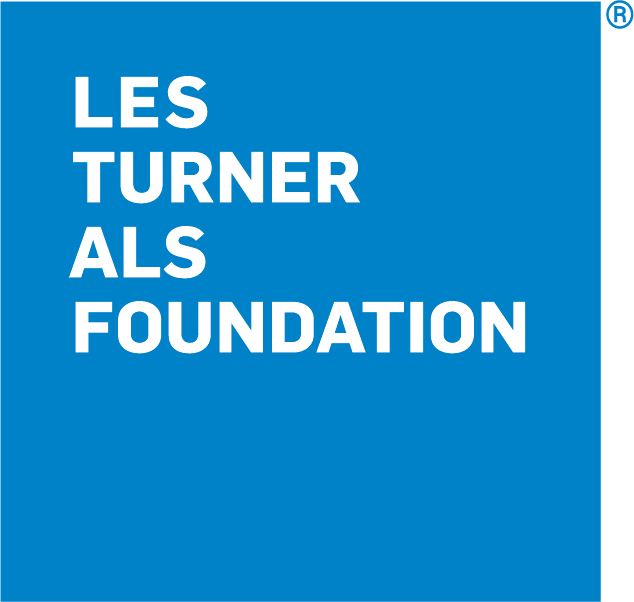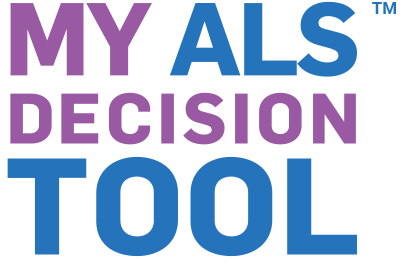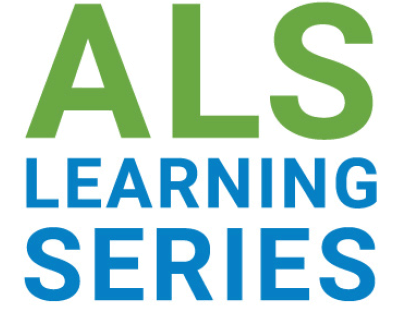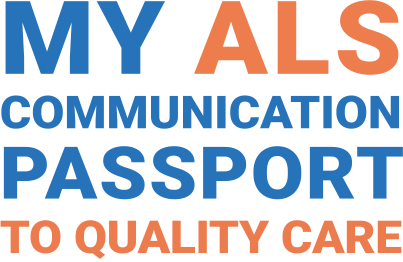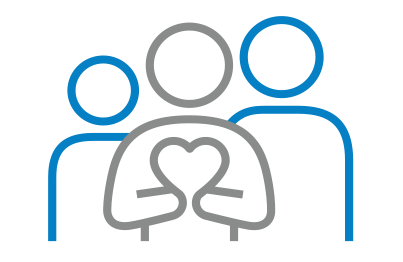ALS & Participation In Clinical Research
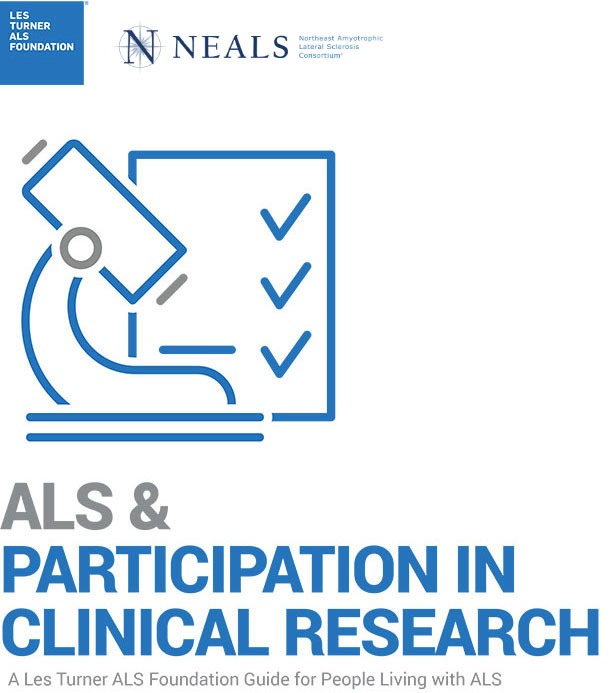
What is clinical research?
If you’re living with ALS, you can volunteer to participate in a type of scientific study called a clinical research study. Through clinical research, scientists and doctors can learn about ALS from people who’ve experienced it firsthand, gain a deeper understanding of genetic differences linked to ALS, and test potential treatment options.
There are many ways that people living with ALS can get involved in clinical research:




What are the benefits of participating in clinical research?
If you join a clinical trial, you may try a new treatment option that’s not available to the public yet. During a clinical trial, you will be monitored frequently.
By participating in any type of clinical research, you can help researchers make scientific discoveries that will help people living with ALS in the future. For many people, participating in research can be an empowering experience.



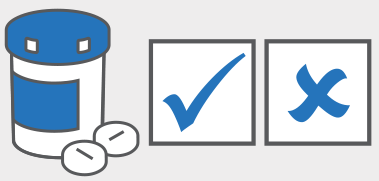
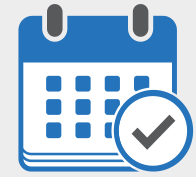
How do I decide if I want to participate in a clinical research study?
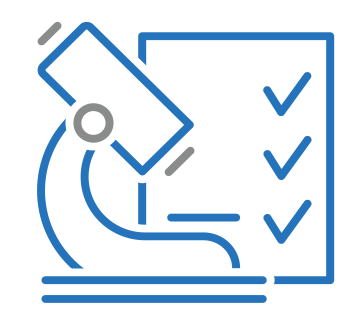
The first step is to learn about ALS clinical research from reliable sources. Talking to your doctor or ALS care team is a great place to start. They can walk you through the basics of clinical research and give you input based on your personal situation. You can also explore these online resources:
ClinicalTrials.gov is a central database of clinical trials for all health conditions, including ALS. All studies that are looking for participants in the United States (and most studies worldwide) are posted on ClinicalTrials.gov.
NEALS (NEALS.org) has a database of clinical research studies related to ALS. If you have questions about the database or you’d like to learn more about a study, contact the Clinical Trial Liaison at alstrials@neals.org or (855) 437-4823.
The ALS Trial Navigator (ALS.net/ALSTrial-Navigator) is a comprehensive resource that guides people living with ALS as they learn more about finding and participating in clinical trials for ALS. After answering a few questions, you can learn about research opportunities, set personal priorities, and find trials that meet your criteria. The Navigator also has an interactive map to help you find trials in your area.

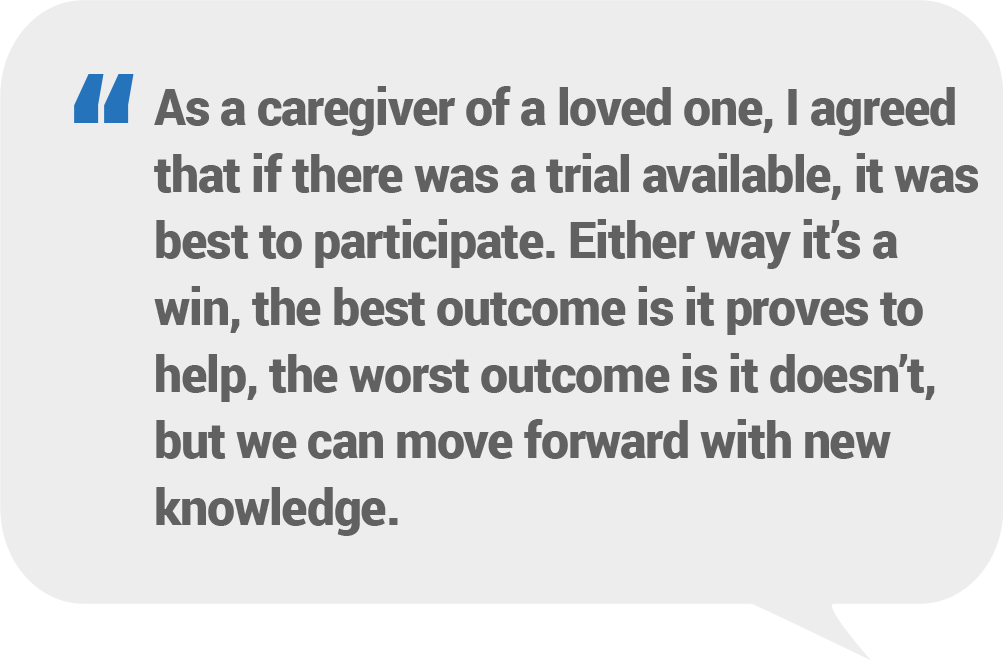


If you have questions about ALS clinical research, you can reach out to the following organizations:
-
- Your local study coordinator
- NEALS: alstrials@neals.org
- Massachusetts General Hospital (MGH) ALS Research: mghalsresearch@mgh.harvard.edu
If you have questions about a specific study listed on ClinicalTrials.gov, you can reach out to the study team. Look for the Contacts and Locations table under each study.

In addition to exploring clinical research, some people living with ALS consider trying alternative or off-label treatments (AOTs). ALSUntangled provides scientific reviews of AOTs to help people living with ALS make more informed decisions.
Explore treatment reviews, questions and answers, podcast episodes, and more at ALSUntangled.com.
Step 2: Think about your needs and goals






Next, look for clinical research studies that align with your needs. Ask your doctor or ALS care team if they know of any studies that might be a good fit for you based off the type of ALS you have. You can also use the websites listed under Step 1 to find studies.
As you review study descriptions, look for information about where the study will happen and how long it will last. Some clinical trials test the same study drug in multiple locations, making it possible for more people to participate.
Study descriptions may also list eligibility criteria, or rules about who can participate in the study. For example, researchers may be looking for people in a certain age group or people who have a specific type of ALS.


If you find a study that you’re interested in joining, contact the research team. If your doctor told you about the study, they can help you get in touch with the research team. If you found the study online, the study description will usually include contact information or an online form to fill out.
If the research team thinks you may be a good fit for the study, they may ask you questions and review information about your health, like your:
- ALS symptoms
- Family medical history
- Breathing scores
- ALS Functional Rating Scale (ALFRS-R) scores
- Genetic testing results
- Medicines
Based on all this information, the team will decide if you qualify to participate in the study. If you qualify, they’ll explain how the study works and answer any questions you may have. Check out the right side of this page for a list of questions to ask the research team.

Talk to your doctor or
ALS care team

Participating in a research study is an important decision. It’s important to ask questions and make sure the study is right for you. Here are some questions you may want to ask the research team.
What to expect during the study
- How long will the study last?
- Where will the study take place?
- What are the possible risks of participating in the study?
- Will I get any medicine or treatment as part of the study?
- Will I need to have any medical tests during the study? If so, will I find out my results?
Health care during the study
- Can I keep seeing my regular doctors during the study?
- Will you communicate with my doctors and let them know how I’m doing?
- Can I keep taking my current medicines while I’m participating in the study?
Health insurance and costs
- Do I need to have health insurance to participate in the study?
- Will I be reimbursed (paid back) for expenses related to the study, like travel or parking costs?
What happens after the study
- Can I keep receiving treatment after the study ends?
- Will you tell me the results of the study?
- Will you tell me if I was taking the actual study drug?
- Who can I contact if I have questions after the study ends?
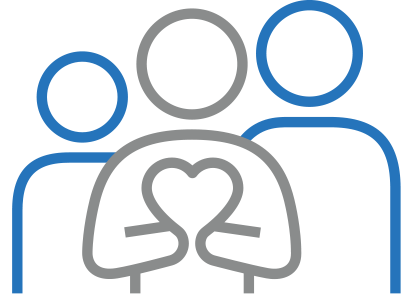
Check in with yourself and
make a decision
Finally, check in with yourself and decide if you want to participate in the study. Is this study the right fit for you? Here are a few questions to consider:
What do I expect to get out of this study?
What are the benefits and risks of participating in this study?
Will I need help with traveling to study appointments, taking medicine, or getting medical tests done? If so, who can help me during the study?
It may also be helpful to talk through these questions with someone you trust. Remember, there’s no right or wrong answer — it’s all about what works best for you.
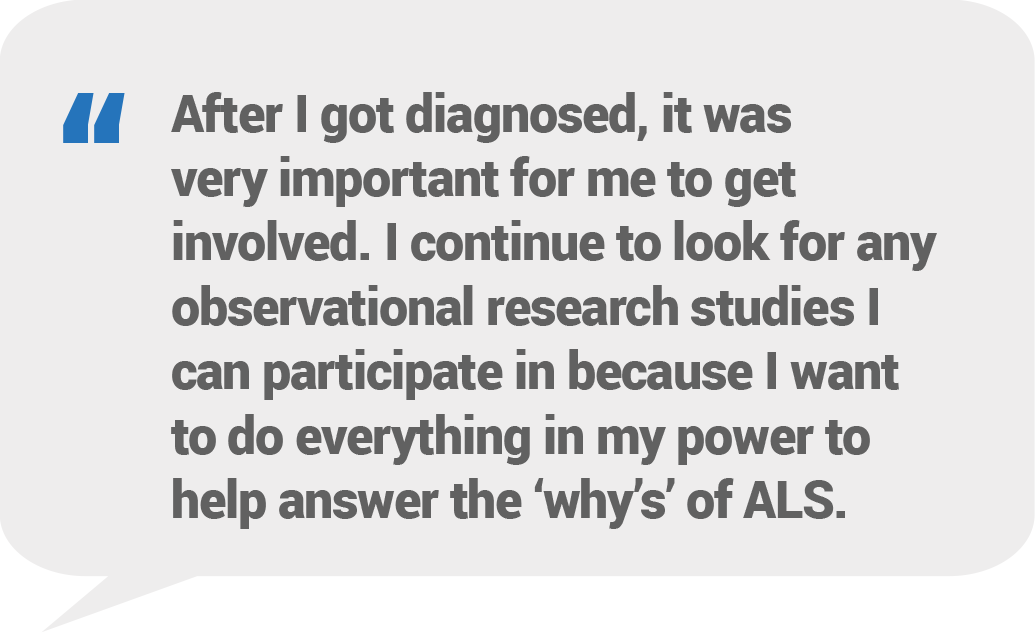
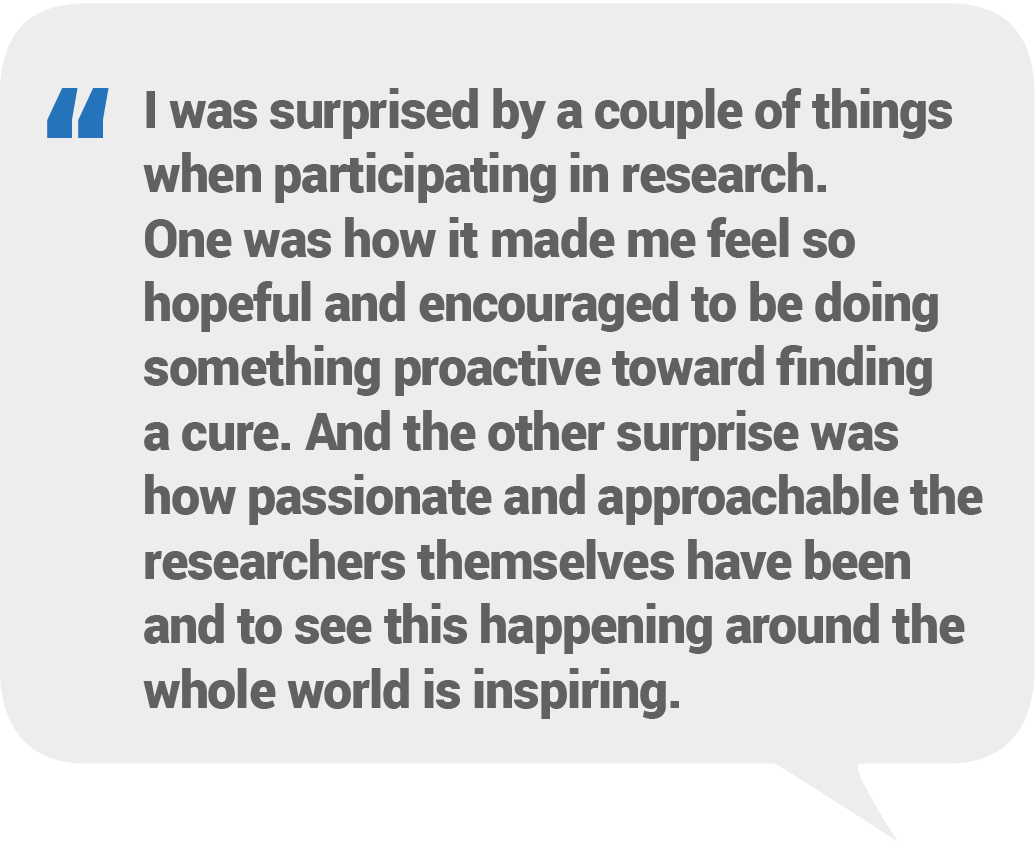
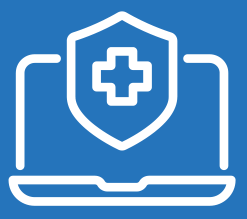

Learn more
My ALS Decision Tool™
ALS Learning Series
My ALS Communication Passport to Quality Care
Support Groups
These resources are made possible by a generous donation from the Gilbert & Jacqueline Fern Foundation and other donors to the Foundation.
Sign up for News and Updates
Get helpful resources and updates from the Les Turner ALS Foundation delivered straight to your inbox. You’ll receive information on additional decision tools to help you understand your treatment options and make the decision that's right for you, plus information on upcoming events, ALS research, clinical trials, and more.

